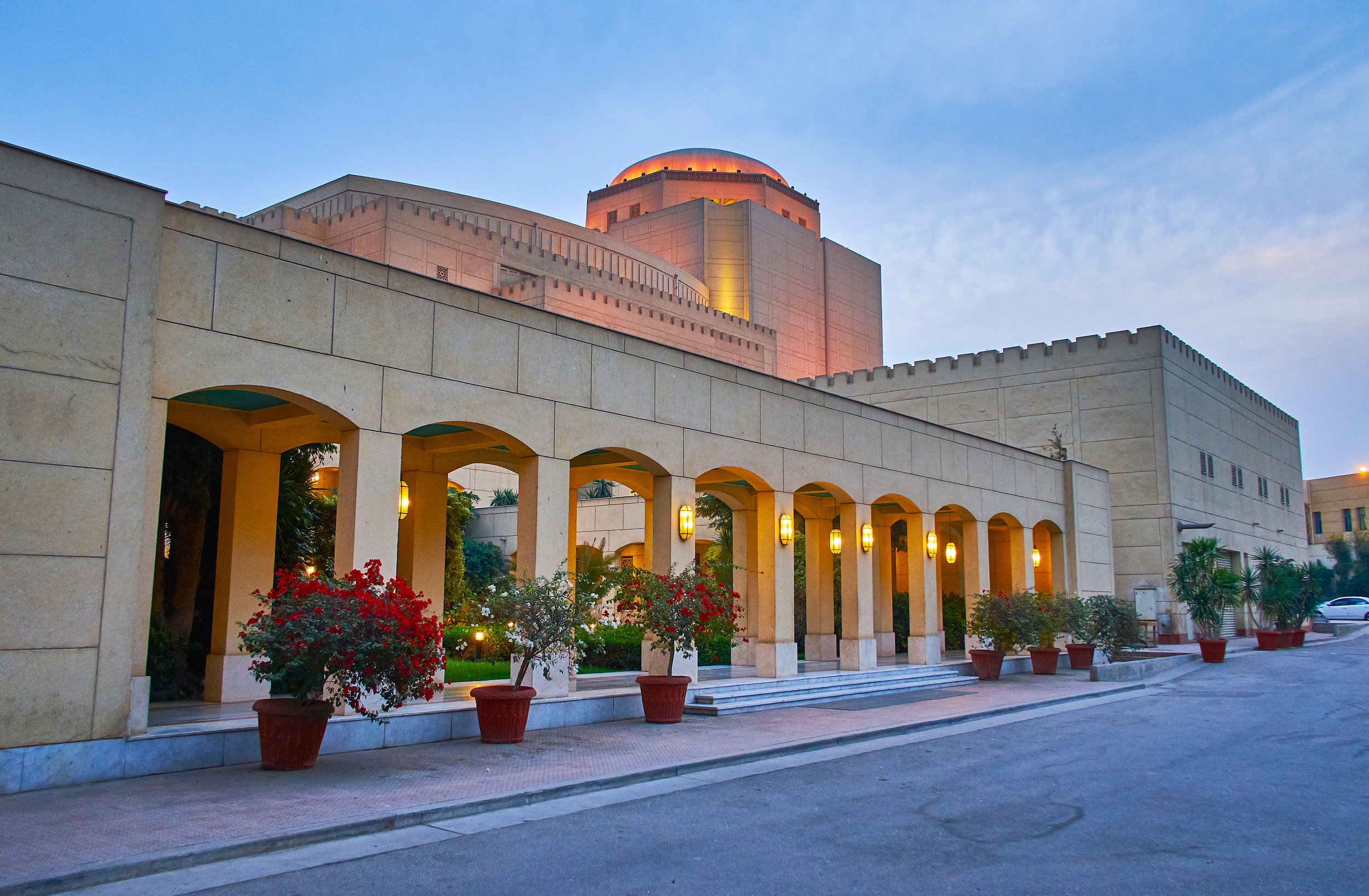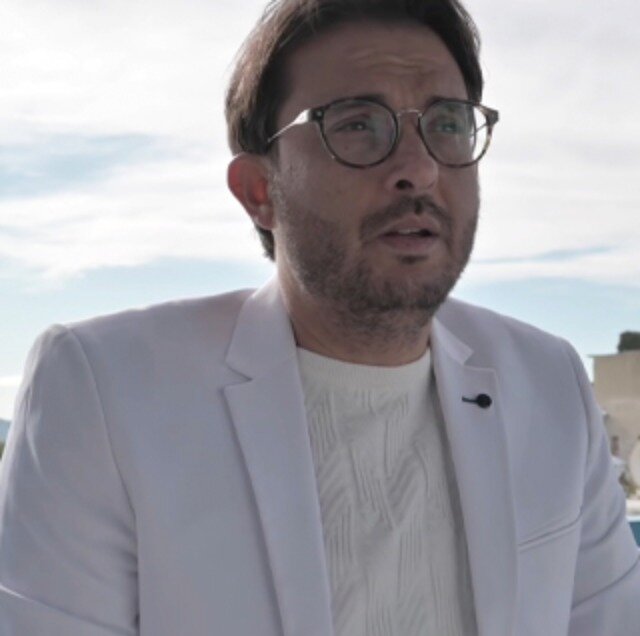
Our Team
Staff
JOSEPH BRAUDE
Center founder and President Joseph Braude is an expert on the nexus of culture and politics in Arab societies and an active presence in the region’s media and policy debates. He studied Near Eastern languages at Yale and Arabic and Islamic history at Princeton. He developed his Arabic to broadcast quality over a seven-year stint on Moroccan national radio and added Persian to his Arabic and Hebrew as a graduate student at the University of Tehran.
Braude’s most recent book, Reclamation: A Cultural Policy for Arab-Israeli Partnership (Washington Institute for Near East Policy, 2019) presents a strategy on how to roll back generations of antisemitic and rejectionist messaging in Arab media, mosques, and schools. His three prior books include a prescription for post-Saddam institution building in Iraq (The New Iraq, Basic Books, 2003), a study of crime and punishment in Casablanca (The Honored Dead, Random House, 2011), and an assessment of prospects to foster liberal social trends through Arab media (Broadcasting Change, Rowman & Littlefield, 2018).
MICHAEL NAHUM
Serving as Chief Operating Officer, Michael Nahum brings Arabic and Hebrew fluency and a decade’s experience engaging with the region’s media to the CPC. As a Senior Arabic Linguist with ATS and AECOM, he provided high-level U.S. government clients with timely and layered analyses of regional crises and emerging trends. His areas of expertise include Middle Eastern cultural topography, Syrian militia dynamics, and mapping the Arabic social media environment. Afterwards, he helped lead the MENA team at Dataminr Inc., a realtime information discovery company with military, corporate, and public relations clientele.
Prior to joining the CPC, Nahum spent two years in Arab capitals. He developed his fluency in modern Arabic while living in Damascus during the early phases of the Syrian civil war. He studied Classical Arabic at the Qasid institute in Amman Jordan and in Sanaa, Yemen at the Yemen College of Middle East Studies. He also lived for two years in Israel, gaining fluency in Hebrew at Haifa University and the IDC in Herzliya. He holds an MA in Arabic from the University of Maryland in College Park, and a BA in Islamic and Middle Eastern Studies from Brandeis University.
AHED AL-HINDI
An economist by training, Ahed al-Hindi is a member of the Executive Committee of the Arab Council for Regional Integration. As a social entrepreneur in his native Syria, he organized artists to restore color and images of hope to public spaces in territories liberated from ISIS. He also devised a program for Syrian artists to use 3D modeling techniques to build prosthetics for their fellow citizens who had been wounded in the war. An active voice for Arab development and reform, he is a frequent guest on pan-Arab satellite channels, and his writing has appeared in leading American and Arab newspapers.
HADEEL OUEIS
Author and media personality Hadeel Oueis leads Arabic communications on behalf of the Center. An advocate for liberal democracy in her native Syria during the historic uprising against Bashar al-Assad, she subsequently relocated to the United States and developed her career in Arab media as an analyst of American foreign policy. She serves as a reporter the Saudi daily Al-Riyadh, and now hosts biweekly programs on two leading independent news networks in the region: Iraq’s Al-Sharqiya and Yemen’s ATV. She appears frequently as a commentator on some of the region’s largest indigenous outlets as well as the Arabic editions of the BBC, Deutsche Welle, and Al-Hurra.
Oueis holds a BA in sociology from the University of Aleppo.
TALAL AL-HARIRI
An Iraqi civic activist from Baghdad, Talal al-Hariri serves on the Executive Committee of the Arab Council for Regional Integration. Prior to entering the field of civil reform, he worked as a writer and journalist for several media institutions, including the Iraqi Commission for Broadcasting and Broadcast Services. He subsequently co-founded the liberal Tamaddun Alliance, then became Secretary General of the October 25 party, which adopts Iraqi-Israeli peace and partnership among its goals.
Hariri holds a BA in political science from the University of Mosul. His academic initiatives include participating in the formation of the Urnammu Center for Studies and efforts to revive awareness of Iraq’s multi-denominational heritage among the country’s youth.
NOAMANE CHAARI
A native of Sfax, Tunisia, Noamane Chaari is a lifelong musician, vocalist, and peace activist. On the principle that “art does not recognize borders,” he sang for unity and solidarity after Tunisia’s National Reconciliation and composed an operetta for national reconciliation amid Libya’s civil war. A founding member of the Arab Council for Regional Integration, he defied the taboo on civil engagement with Israelis, first by visiting Israel and the Palestinian areas and then performing the song “Peace Among Neighbors” with Israeli vocalist Ziv Yehezkel.
Senior Fellows
DAVID KHALFA
A European politics and foreign policy specialist, David Khalfa chairs the French branch of the RBF Remembrance Forum, an international NGO dedicated to combating racism and antisemitism on the European continent. In his current role as the CPC’s senior adviser on European affairs, he brings 15 years' experience engaging with European decision-makers as well as prominent figures in media, think tanks, and NGOs.
REBAR SALAHADDIN ABDALLAH
After receiving his Bachelors in Architectural Design from Salahaddin University in Erbil, Rebar Salahuddin Abdallah pursued a double degree humanities Masters program, between Brandenburg Technical University in Cottbus, Germany and Alexandria University in Egypt, aiming to study models of social healing in post-conflict environments. Over eight years’ work with NGOs in Kurdistan, he has supported women’s advancement, youth empowerment, and the resettlement of refugees.
As part of his current work with the Center, Mr. Abdallah is mapping the remnants of Sulaymaniya’s Jewish quarter. The project includes local research, outreach to Kurdish Jewish families and scholars outside Iraq, and an exploration of the German Stolperstein project as a model for instilling local awareness of Kurdistan’s more multi-sectarian past.
Board of Directors
DENNIS ROSS — CHAIRMAN
Ambassador Dennis Ross is counselor and William Davidson Distinguished Fellow at The Washington Institute for Near East Policy. Prior to returning to the Institute in 2011, he served two years as special assistant to President Obama and National Security Council senior director for the Central Region, and a year as special advisor to Secretary of State Hillary Rodham Clinton.
For more than twelve years, Ambassador Ross played a leading role in shaping U.S. involvement in the Middle East peace process and dealing directly with the parties in negotiations. A highly skilled diplomat, Ambassador Ross was U.S. point man on the peace process in both the George H. W. Bush and Bill Clinton administrations. He was instrumental in assisting Israelis and Palestinians to reach the 1995 Interim Agreement; he also successfully brokered the 1997 Hebron Accord, facilitated the 1994 Israel-Jordan peace treaty, and intensively worked to bring Israel and Syria together.
A scholar and diplomat with more than two decades of experience in Soviet and Middle East policy, Ambassador Ross worked closely with Secretaries of State James Baker, Warren Christopher, and Madeleine Albright. Prior to his service as special Middle East coordinator under President Clinton, Ambassador Ross served as director of the State Department's Policy Planning Staff in the first Bush administration. In that capacity, he played a prominent role in U.S. policy toward the former Soviet Union, the unification of Germany and its integration into NATO, arms control negotiations, and the 1991 Gulf War coalition.
GEORGETTE BENNETT
Dr. Georgette Bennett is an award-winning sociologist, criminologist, author, and philanthropist who has worked tirelessly to promote conflict resolution and interfaith relations. She has co-founded a number of major humanitarian institutions, including the Multifaith Alliance for Syrian Refugees, which has delivered more than $175 million in humanitarian aid for 2.3 million Syrian war victims; the Tanenbaum Center for Interreligious Understanding, the flagship organization for combating religious prejudice; and the Global Covenant of Religions/Global Covenant Partners, which focuses on delegitimizing the use of religion to justify violence and extremism. Bennett served in the U.S. State Department Religion and Foreign Policy initiative’s working group on conflict mitigation, tasked with developing recommendations for the U.S. Secretary of State on countering religion-based violence.
Prior to her career in interreligious relations, she was a renowned criminologist who, among other things, focused on the link between religion and violence. Bennett was awarded the AARP Purpose Prize for her work with the MFA and recently received an Extraordinary Women Award from the 92nd Street Y. In 2021, she was included in the first Forbes 50 Over 50 Women of Impact list and featured by Forbes and MSNBC, along with Condoleezza Rice, Dr. Najat Arafat Khelil, and Susan Rice as women who helped shape the course of modern American foreign policy and human rights. A former Network Correspondent for NBC News, she is the author of nine books and manuals and dozens of articles — most recently, Thou Shalt Not Stand Idly By: How One Woman Confronted the Greatest Humanitarian Crisis of Our Time (Wicked Son, 2021). Religicide, co-authored with Nobel Peace Prize co-recipient Jerry White, which will be published in Summer 2022. Her book Crimewarps: The Future of Crime in America, was nominated for a Pulitzer Prize (Knopf Doubleday, 1989).
HEATH GRANT
Heath Grant, a professor at the John Jay College of Criminal Justice, is a seasoned international information program executive. As CEO of Success for Kids, he positioned the group’s unique approach of Social Emotional Learning as one of the most sought-after program partnership opportunities throughout Africa, the Middle East, Europe, and the Americas. He also served as a senior consultant for the “Culture of Lawfulness Project” sponsored by the National Strategy Information Center (NSIC), a nongovernment educational organization based in Washington. His unique approach to the program was instrumental in helping partners in the Americas and the Middle East foster societal support for the rule of law by engaging media, spiritual leaders, schools, and local government. Today this program continues to reach over one million children per year around the world.
Dr. Grant has worked with the US Department of State, USAID, National Institute of Justice, and other agencies in Europe, the Americas, Asia, and Africa to develop programs focused on building a culture of lawfulness and countering criminality and corruption.
He is also a board member of the Every Child is Ours Foundation.
JONATHAN SCHANZER
Dr. Jonathan Schanzer is senior vice president for research at the Foundation for the Defense of Democracies, where he oversees the work of the organization’s experts and scholars. He is also on the leadership team of FDD’s Center on Economic and Financial Power, a project on the use of financial and economic power as a tool of statecraft. Jonathan previously worked as a terrorism finance analyst at the U.S. Department of the Treasury, where he played an integral role in the designation of numerous terrorist financiers.
Jonathan has written hundreds of articles on the Middle East, along with more than a dozen monographs and chapters for edited volumes. He is the author of four books, most recently, Gaza Conflict 2021: Hamas, Israel and Eleven Days of War (FDD Press, 2021).
Jonathan testifies often before Congress and publishes widely in American and international media. He has appeared on American television channels such as CNN and Fox News, as well as Arabic-language channels such as Al-Arabiya and Al-Jazeera. An Arabic and Hebrew speaker, he earned his PhD from King’s College London, where he wrote his dissertation on the U.S. Congress and its efforts to combat terrorism in the 20th century. In the course of his research, he has traveled widely throughout the Middle East and North Africa.













